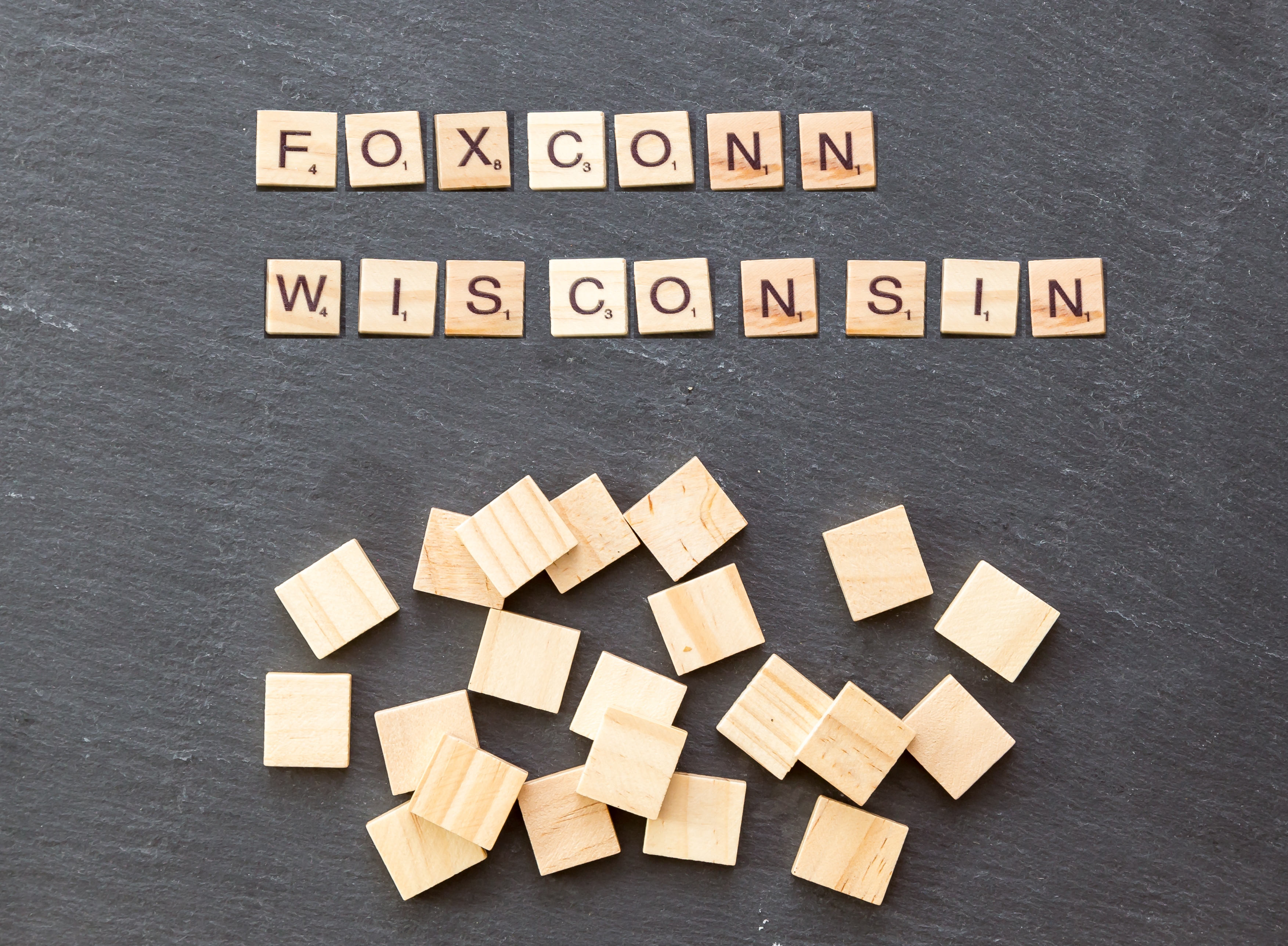
Is “Waukesha fatigue” responsible for tepid regional response?
“It ain’t over ‘til it’s over,” goes the famous Yogi Berra refrain.
Yogi was referring to the need to keep fighting even if the odds are stacked against you.
Perhaps that’s how a coalition of environmental advocates view their legal challenge of Wisconsin’s recent decision to allow another diversion of water from the Great Lakes basin.
The diversion would support the developing Foxconn Technology operation under construction that could bring up to 13,000 jobs to the region.
In late April, the Wisconsin Department of Natural Resources, following a “hurry-up” process, approved a diversion of six million gallons of Lake Michigan water a day for the Foxconn operation.
Such a diversion is allowable under provisions of the Great Lakes Compact, if the area in question is in a community that straddles the basin divide. Unlike the Waukesha diversion which required approval of all the Great Lakes states, only Wisconsin’s approval was required.

Midwest Environmental Advocates, Image by Midwestadvocates.org
Madison-based Midwest Environmental Advocates (MEA) along with four environmental groups have filed a contested case petition with the DNR challenging the decision.
The groups say to be compliant with the Great Lakes Compact that governs diversions, the water must be used for public purposes and mostly residential customers. Most of the diverted water will go to support Foxconn.
MEA attorney Jodi Habush Sinykin said in a statement that the legal challenge is “essential” to protect the integrity of the compact.
She called the DNR’s diversion approval a “mistake (that) must be corrected to defend the Great Lakes Compact and to protect our magnificent Great Lakes in the near and distant future.”
The Wisconsin DNR has granted the environmental groups a hearing before an administrative law judge. Under Wisconsin law, that’s the first step in what could be a protracted legal challenge, Habush Sinykin told Great Lakes Now.
She says other parties could join in support of the coalition in its legal challenge and “momentum is building.”
Tepid support
Response to Wisconsin’s diversion approval from other Great Lakes states was tepid and centered on the provision of the compact that requires the diversion to provide water primarily to residential customers.
Both Michigan and Pennsylvania asked Wisconsin to explain how that complies with the compact. The Wisconsin DNR did not respond directly to Michigan or Pennsylvania, and instead submitted a detailed, technical response to the Regional Body of states and Canadian provinces, the group that advises the governors and premiers on water withdrawals.
Wisconsin’s response largely focused on grey areas of the compact that could be subject to interpretation to justify the diversion.

Pennsylvania State Flag, Images by wikimedia.org
Pennsylvania followed with a letter saying it believed Wisconsin’s decision complied with the compact but that the methodology Wisconsin used to justify the diversion warranted future examination by the states.
Michigan’s Jon Allan directs the Office of the Great Lakes and he referred Great Lakes Now inquiries to the Great Lakes St. Lawrence Governors and Premiers, the Chicago-based organization that administers the compact. Peter Johnson, deputy director of the governor’s organization had no comment on how the states are dealing with the diversion.
Foxconn enhances conservation efforts
Last week Foxconn took action that could make the diversion more palatable to some.
It announced a $30 million investment in a system that “will allow it to dramatically reduce the facility’s water intake requirements from Lake Michigan and virtually eliminate the return of any manufacturing process waste water to the Lake,” the company said in a press release.
The enhancement “will eliminate manufacturing process waste water by distilling it allowing the company to recycle, recover, and re-use it” according to the release. It will also reduce the daily demand for Lake Michigan water from six million gallons a day to 2.5 million, the company said.

Dean Amhaus, CEO of The Water Council, Photo by The Water Council
The announcement drew immediate praise from Milwaukee’s Water Council, a largely business-centric group that focuses on water as an economic driver. “We applaud Foxconn for its progressive plan to aggressively recycle water used for manufacturing within their facilities and help minimize the amount of water drawn from Lake Michigan,” the council’s CEO Dean Amhaus is quoted in the Foxconn release.
While the MEA lead environmental groups are appreciative of the conservation effort, the move is unlikely to sway them as they are focused on the threat to the integrity of the compact they say the Foxconn diversion poses.
The Great Lakes St. Lawrence Cities Initiative, a coalition of U.S. and Canadian mayors who advocate on Great Lakes issues, made public comments before the diversion was approved. The mayors wanted the request put on hold while a comprehensive regional review of the application was conducted.
Wisconsin did not honor that request.
But at its recent annual meeting, the mayors did not elevate the Foxconn diversion issue to status of voting on a resolution according to program manager, Melissa Soline.
The group had been strongly opposed to the Waukesha diversion to the point of threatening legal action after the decision. John Dickert is the president of the mayors group and he is the recent former mayor of Racine, the city that will supply Lake Michigan water to Foxconn.
Current Racine Mayor Cory Mason supports the diversion. As an elected state representative he adamantly opposed the Waukesha diversion.
Waukesha fatigue

Lynn Broaddus, President of Broadview Collaborative, Inc., Photo by broadviewcollaborative.com
Former Wisconsin Great Lakes advocate Lynn Broaddus believes the “MEA’s legal challenge is solid but that doesn’t mean it will be easy,” she said. She attributes the tepid response from Great Lakes states and advocacy groups to “Waukesha fatigue.”
“The states and advocates went through a protracted process and fight over the Waukesha diversion, and they don’t always want to be fighting,” Broaddus said.
Broaddus did say that separate from the Compact, “there is good reason to challenge the Foxconn plant on air quality concessions granted by the DNR and the chance of success may be greater.”
Broaddus is founder and president of the Broadview Collaborative, a national water consulting company.
Wisconsin DNR spokesperson James Dick told Great Lakes Now the administrative law judge conducting the contested case hearing will decide if other groups may comment.
A timetable for the hearing has not been determined, he said.
Featured Image: Foxconn’s impact on Wisconsin will be closely watched by environmentalists, Photo by Marco Verch via flickr.com cc 2.0





